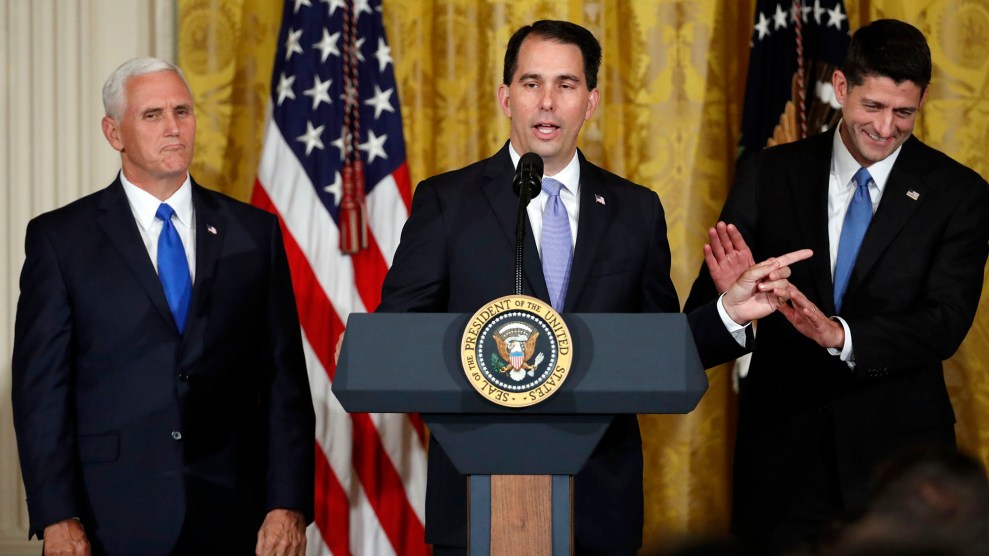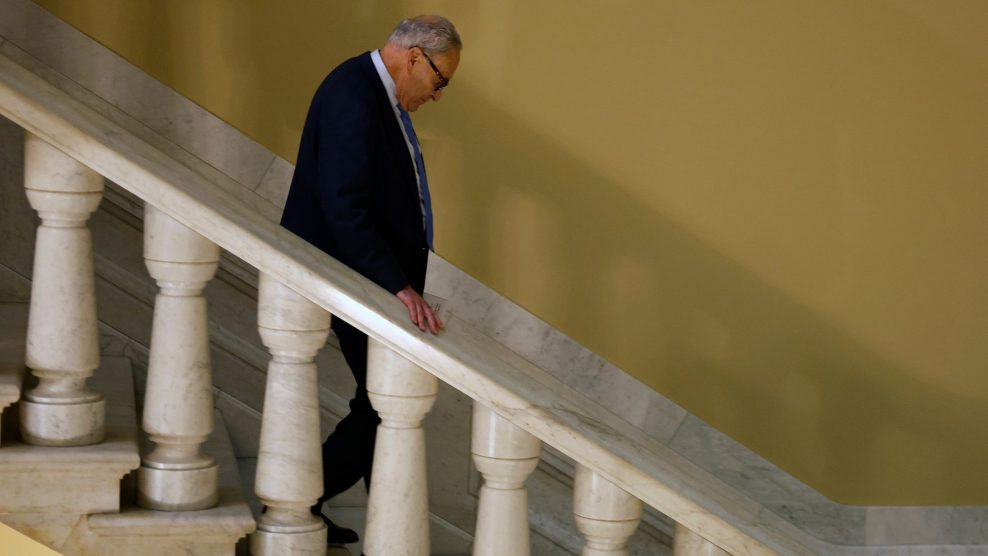
Wisconsin Gov. Scott Walker, with Vice President Mike Pence and House Speaker Paul Ryan, speaks at the White House last July.Alex Brandon/AP
Wisconsin Gov. Scott Walker must hold special elections this spring to fill two vacant state legislative seats, a judge ruled Thursday. Walker has tried to prevent the elections from taking place in two districts that could flip from Republican to Democratic control at a time of political backlash against President Donald Trump across the country.
Walker has a “plain and positive duty” to hold the elections, ruled Dane County Circuit Court Judge Josann Reynolds, who was appointed by Walker in 2014. “To state the obvious, if the plaintiffs have a right to vote for their representatives, they must have an election to do so,” Reynolds said from the bench.
Two Republican members—Sen. Frank Lasee and Rep. Keith Ripp—left the legislature in December to join Walker’s administration, but the governor refused to schedule special elections, claiming they would be a waste of money since the legislature was set to adjourn in March. A Democratic group led by former Attorney General Eric Holder sued the governor on behalf of Wisconsin voters in the two districts, noting that the Wisconsin constitution says legislative vacancies “shall be filled as promptly as possible by special election.” Holder called Walker’s refusal to hold the elections “an affront to representative democracy.”
Voters from the two districts testified in court that they had been denied representation as a result. “We have nobody representing the interests of our Senate district right now and that upsets me,” said Jennifer Meyer of the town of Scott, near Green Bay, according to the Milwaukee Journal Sentinel. “We’re entitled to representation.”
“I think it’s important that voters have a voice in their government,” said another voter, Desiree Frank, from Fond Du Lac County.
The attorney for the plaintiffs, Elisabeth Frost, called it “textbook voter disenfranchisement,” according to the Associated Press. “I can’t imagine a more clear case of disenfranchisement of the right to vote,” she said. The judge agreed.
She says not holding elections deprives voters of their rights.
"To state the obvious, if the plaintiffs have a right to vote for their representatives, they must have an election to do so."
— Patrick Marley (@patrickdmarley) March 22, 2018
The political tide in Wisconsin appears to be turning toward Democrats, after Trump notched a surprise victory there in 2016. In January, Democrat Patty Schachtner scored a shocking upset in northwest Wisconsin, winning a special election for a state Senate seat by 11 points. The district had been in Republican hands since 2000 and was carried by Trump by 17 points in 2016. Wisconsin Democrats said Walker was refusing to hold special elections for the two vacant legislative seats because he was afraid Democrats would win them, too.
The ruling said Walker must issue an order within a week scheduling the elections.


















